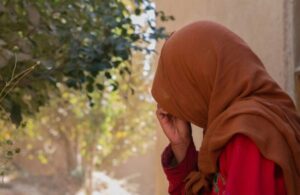KABUL (SW) – Findings from Salam Watandar’s interviews with 50 Afghan youths reveal that due to economic pressures and the need to meet basic life requirements, young people are less focused on saving money.
In this report, 26 males and 24 females from 11 provinces of Afghanistan, were interviewed. Twenty-seven respondents (54% of the sample) said that low income and high living costs prevented them from saving.
Mawluddin Noori, a 33-year-old teacher from Balkh, shared: “My salary is so low that it barely covers my living expenses. It’s impossible for me to save any money.”
Similarly, Abdul Hakim, a 21-year-old student from Bamyan, said, “I can’t save money. I can only manage to cover my daily expenses for education. Being a student is hard and requires a lot of spending.”
The findings also show that saving holds significant importance for Afghan youths and contributes to their economic progress and future stability.
However, girls are more interested in saving than boys. 23 individuals (15 females and 8 males) stated that they save part of their daily or monthly income to grow their personal economy.
Maria, a 22-year-old teacher from Laghman who works in a local kindergarten, explained that she saves part of her salary to avoid economic dependency on others. She added: “I save money so I don’t face financial difficulties. My brother and I share the household expenses and cover my father’s medical costs, and right now, no one is in a position and situation to lend money.”
Forohar, a 28-year-old workshop manager from Baghlan, shared that she saves a portion of her income for the development of her business. “I use my savings to improve and modernize my workshop, and most of my savings go toward expanding it to create job opportunities for women.”
Qurban Ali, a 23-year-old from Baghlan, explained that saving is essential for achieving his future goals. “I save part of the money my family sends me. Although my savings are small, this habit will help me avoid financial difficulties in the future.”
However, despite many young people wanting to save, they are often unable to do so due to low incomes, lack of planning, and a lack of saving habits.
Despite these challenges, targeted planning and learning money management skills could help foster a saving culture among Afghan citizens. Hasibullah Noori, spokesperson for Afghanistan’s central bank under the Islamic Emirate, explained that the bank has launched various programs to encourage young people to save and make informed financial decisions.
“Through awareness campaigns and training, we encourage young people to save and use banking services. The Central Bank of Afghanistan, in collaboration with private banks, ensures effective financial services for the public, especially for young people,” he added.
On the other hand, Abdul Rahman Habib, spokesperson for the Ministry of Economy of the de-facto government, emphasized that saving plays a key role in strengthening family economies and reducing reliance on external resources.
“High levels of savings in a society can also help reduce economic volatility and create more stability. Saving not only benefits individuals and families but, from a national economic perspective, strengthens domestic demand, which can lead to job creation and improved working conditions.”
Economic expert Hanif Farzan argues that saving can pave the way for investment and help young people avoid future economic challenges. “By saving and managing their financial resources, young people can secure their economic future. Not saving creates many challenges. In the long run, this problem negatively impacts economic growth, welfare, and development.”
Saving is also an important issue at the international level. The Organization for Economic Cooperation and Development (OECD) reported that 18% of students in member countries lack basic financial management skills. The organization stresses the need to equip young people with the necessary knowledge and skills to make informed financial decisions.






